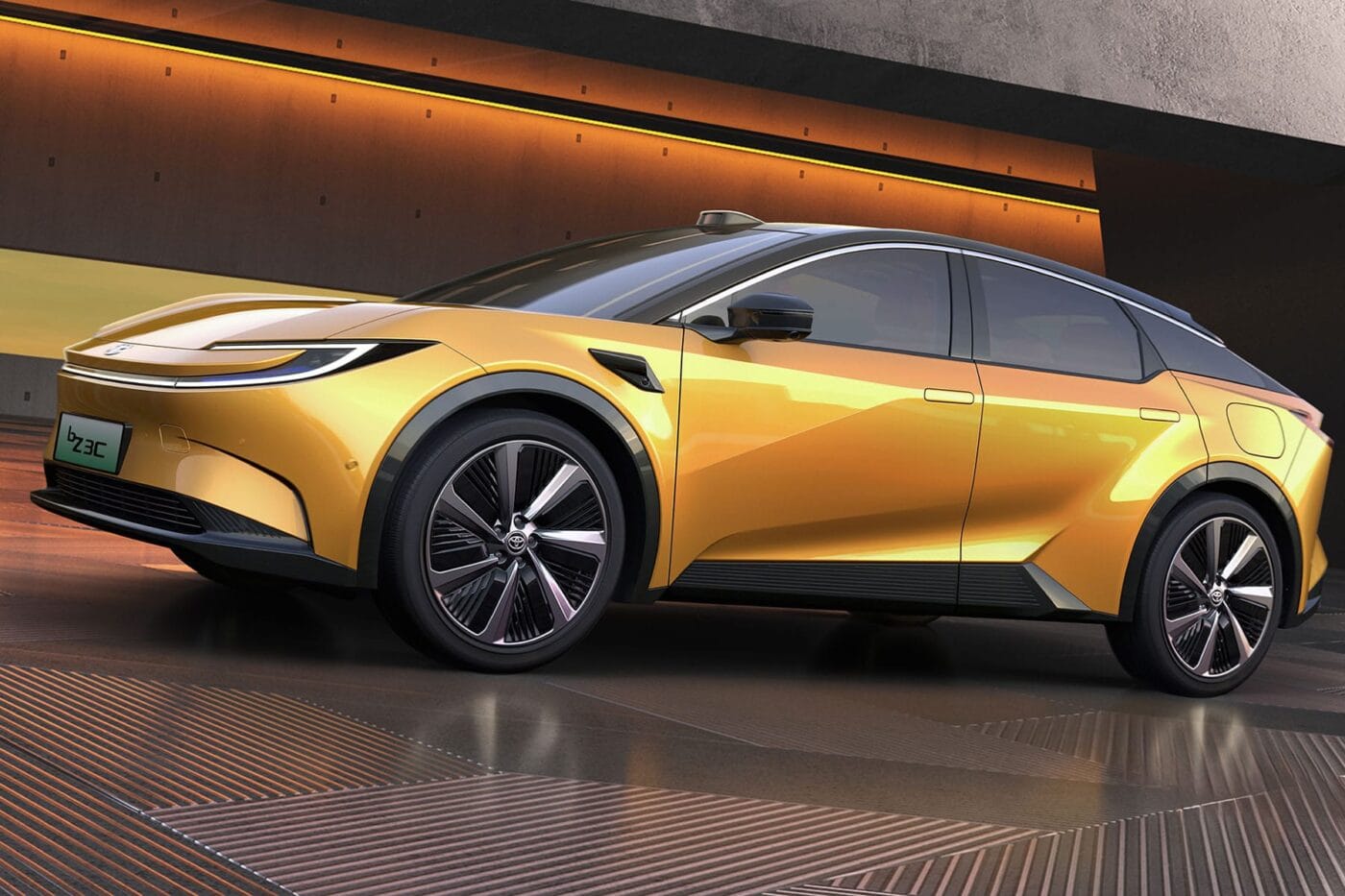Toyota is collaborating with Chinese electric vehicle manufacturer BYD to develop new electric vehicles. The partnership aims to create models that can compete with Tesla, particularly the Model Y.
A new model, the Toyota bZ3C, is in development and expected to launch around 2025. The bZ3C is part of Toyota's "beyond Zero" (bZ) series of zero-emissions vehicles.The bZ3C is expected to be a compact crossover SUV, targeting the popular segment currently dominated by the Tesla Model Y.

BYD is providing key components, including its "Blade" battery technology with LFP (lithium, iron, phosphorus) chemistry. The collaboration extends to other models, such as the bZ3 sedan, which uses BYD's battery technology and electric motor.This partnership allows Toyota to leverage BYD's expertise in electric vehicle technology and potentially reduce costs.
The bZ3C is expected to be a compact crossover SUV, targeting the popular segment currently dominated by the Tesla Model Y.
The partnership between Toyota and BYD has significant implications for the electric vehicle (EV) market:
Combining Strengths:
- Toyota brings its expertise in quality, safety, and mass production.
- BYD contributes its advanced battery technology and experience in the EV market.
Accelerated EV Development:
- The collaboration aims to speed up the development of new electric vehicles, potentially bringing more competitive models to market faster.
Cost Reduction:
- By sharing resources and technology, both companies can potentially reduce development and production costs, making EVs more affordable.
Market Expansion:
- Initially targeting the Chinese market, the world's largest for EVs, this partnership could help both companies increase their market share.
Technological Advancements:
- Joint research and development efforts could lead to improvements in battery technology, vehicle performance, and efficiency.
Competitive Pressure:
- This alliance puts pressure on other automakers to form similar partnerships or accelerate their own EV programs.
Supply Chain Impact:
- The partnership may influence the broader EV supply chain, potentially affecting battery suppliers and other component manufacturers.
Brand Positioning:
- For Toyota, it signifies a stronger commitment to EVs, potentially changing its image from a hybrid leader to a more comprehensive electrification player.
- For BYD, partnering with Toyota enhances its global credibility.

Global Strategy Implications:
While initially focused on China, the partnership could have broader implications for both companies' global EV strategies.
This collaboration represents a significant shift in the EV landscape, potentially accelerating the adoption of electric vehicles and influencing the strategies of other automakers in the rapidly evolving EV market.
This move is part of Toyota's broader strategy to expand its electric vehicle lineup and compete more effectively in the growing EV market.The partnership highlights the increasing competition in the global EV market, with traditional automakers like Toyota seeking to challenge Tesla's dominance.














